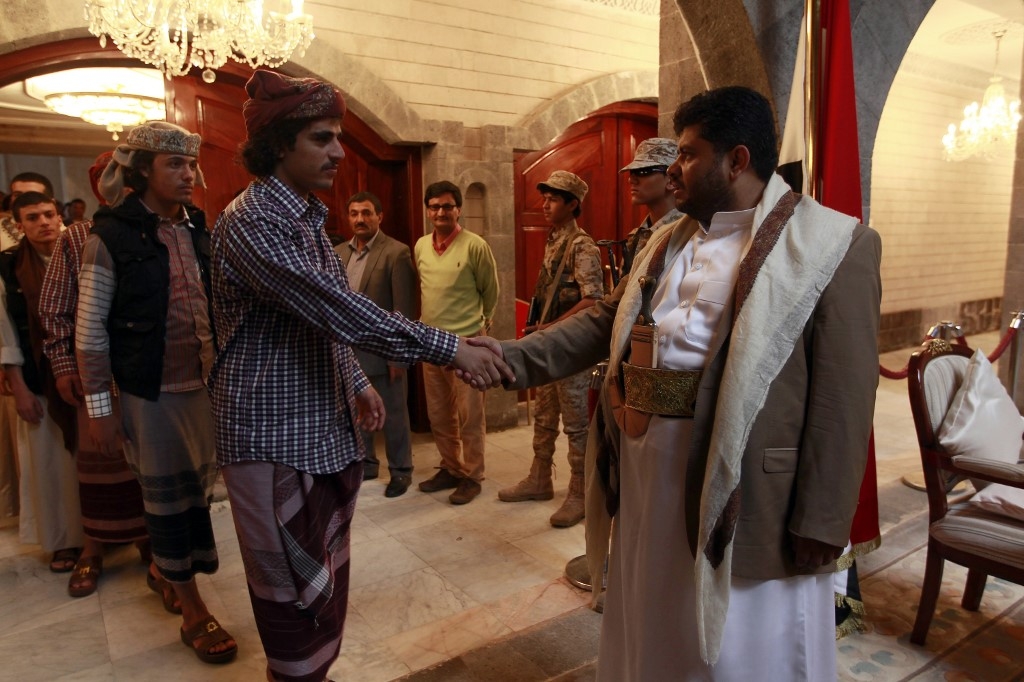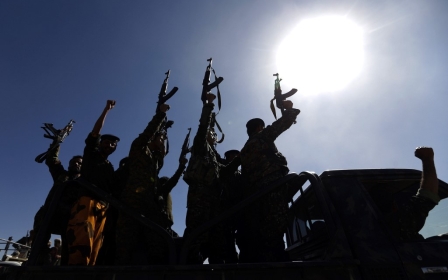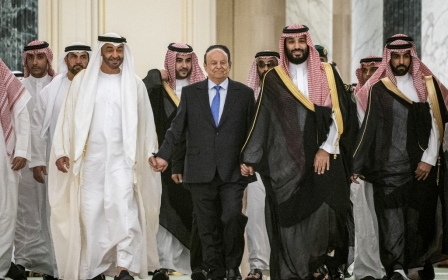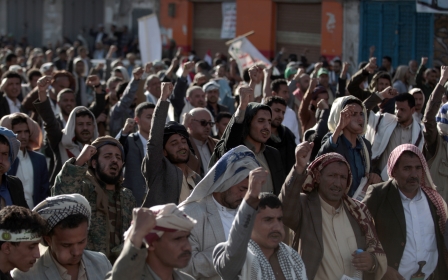Red Cross facilitates return of 128 Yemeni prisoners from Saudi Arabia

The International Committee of the Red Cross (ICRC) said on Thursday that it has facilitated the repatriation of 128 Yemeni prisoners from Saudi Arabia to the Yemeni capital Sanaa, two days after the Saudi-led military coalition said it would release 200 Yemeni rebels.
The aid agency said the repatriation was carried out following a request from the coalition, and in agreement with both parties.
"This release is excellent news for the freed detainees and their families in Yemen with whom they will be reunited," said Kedir Awol Omar, the ICRC's head of mission in Saudi Arabia.
"We hope that the release of these 128 detainees but also the 290 detainees set free by Ansarullah on 30 September will create a positive dynamic and will allow more detainees to be reunited with their families."
The announcement comes two days after the Western-backed Saudi coalition said it would release 200 Houthi prisoners to support peace efforts aimed at ending the nearly five-year war in Yemen.
New MEE newsletter: Jerusalem Dispatch
Sign up to get the latest insights and analysis on Israel-Palestine, alongside Turkey Unpacked and other MEE newsletters
The ICRC did not clarify whether the 128 were part of the group.
"The ICRC is acting as a neutral intermediary and was not involved in any negotiations that preceded the release," the organisation said in a statement.
The coalition also said in a statement on Saudi state media that it would ease restrictions on Yemeni airspace to allow flights out of the Houthi-held capital, Sanaa, to transport people requiring medical treatment abroad.
The announcement comes one day after Saudi Crown Prince Mohammed bin Salman visited the United Arab Emirates amid efforts to end the war.
Earlier in November, the warring parties in southern Yemen signed a power-sharing agreement brokered by Saudi Arabia.
The Riyadh agreement
+ Show - HideThe Riyadh agreement, signed by the Southern Transitional Council (STC), President Abd Rabbuh Mansour Hadi's government, and their Saudi and Emirati backers, was announced on 5 November by Saudi Crown Prince Mohamed bin Salman.
According to the deal, the STC will be part of a new cabinet and tens of thousands of UAE-backed southern forces will be placed under Yemeni government control.
The deal stipulates that within 30 days, the two sides should form a new government of no more than 24 ministers, with 50 percent STC and southern representation.
Hadi would maintain control on key ministries, including interior and defence, while the STC would get two portfolios.
The STC will also be included in political negotiations to end the war against the Houthi movement.
All military forces, the deal stipulates, shall be placed under the defence ministry, while security forces would be under the control of the interior ministry.
Within 15 days, all forces deployed in the south since August should return to their previous positions, and medium and heavy weapons are to be handed over under coalition supervision.
Within 30 days, government and STC military forces should leave Aden and Saudi Arabia’s military is to oversee security in the city.
The coalition intervened in Yemen in March 2015 against Houthi rebels, who ousted the internationally recognised government from power in Sanaa.
United Nations envoy Martin Griffiths on Tuesday welcomed the Saudi-led coalition's decision to release the rebels, after meeting with Prince Khalid bin Salman, the Saudi deputy defence minister.
"Griffiths thanked KSA for announcing the release of the 200 detainees and the opening of Sanaa airport for mercy flights that would allow Yemenis to receive much-needed medical treatment abroad," his office tweeted.
The Houthis had in September unilaterally released 350 prisoners, including three Saudis, after extending an offer to halt cross-border missile and drone strikes on Saudi Arabia if the coalition ended air strikes on Yemen.
The fighting in Yemen has driven millions to the brink of famine in what has been deemed the world's worst humanitarian crisis by the United Nations.
According to a report last month by the Armed Conflict Location and Event Data project (ACLED), an American NGO, more than 100,000 people have died as a result of the war in Yemen.
Middle East Eye delivers independent and unrivalled coverage and analysis of the Middle East, North Africa and beyond. To learn more about republishing this content and the associated fees, please fill out this form. More about MEE can be found here.




